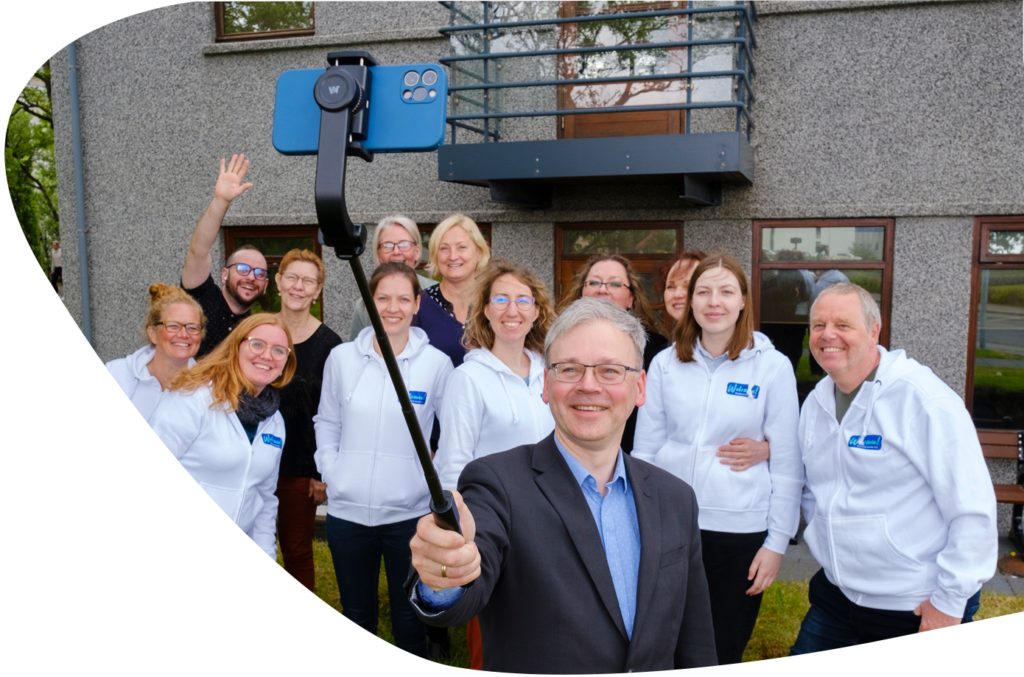Partners
The partners in the project are University of Stavanger (UiS, Norway), University of Iceland (UI, Iceland), and Kaunas University of Technology (KTU, Lithuania).
The partner institutions are all well established universities with between 8000 and 13 000 students. They all have experience in academic and project work and international cooperation, and have participated in a wide range of international projects, also several Strategic Partnership projects. The partners were contacted through The Nordic and Baltic Network for Writing in Higher Education (NB!Write) that brings together writing initiatives in universities and university colleges in the Nordic and Baltic region. The network aims to disseminate innovative pedagogical practices in the Nordic and Baltic regions, exchange practices and interventions for support and development of student writting and instructor competency.

University of Stavanger (UiS)
The University of Stavanger (UiS) is situated on the South West coast of Norway. The city of Stavanger has about 300,000 inhabitants and is
a dynamic and international environment being the hub of the Norwegian energy sector. The university has about 12,000 students (full and part time) and 1,600 employees, and is still growing both in numbers and scope of operations. UiS is organized into six faculties, which compromises a number of departments, research centres and networks within the main fields of academic activities, as well as one archaeological museum. The main academic fields are health and welfare, energy and technology, education, performing arts, social
sciences and humanities, hotel management, business administration and media sciences.
Even though UiS is a relatively young university, it has developed strong links and collaboration with both the public and the private sector of the region.
Project members from UiS
Rune Sørsdal
Management team,
UiS, Norway
Dr. Mari Mæland Nilsen
Management team,
UiS, Norway
Dr. Hannah Tischmann
Management team,
UiS, Norway
Gitte Kolstrup
Steering committee,
UiS, Norway
Inge Christ
Local project team,
UiS, Norway
Markus Barkved
Local project team,
UiS, Norway
Eirik Midbøe Lunde
Local project team,
UiS, Norway
Inger Gåsemyr
Local project team,
UiS, Norway
Julie Hoel
Local project team,
UiS, Norway
Tonje Elise Karlsen
Local project team,
UiS, Norway
Dr. Jo Røislien
Local project team,
UiS, Norway
Ingeborg Marie Jensen
Local project team,
UiS, Norway

University of Iceland
The University of Iceland (UI) was founded in 1911. It is a comprehensive research university that strives to best serve the diverse needs of Icelandic society and industry through teaching, research and innovation. UI is the country´s leading scientific institution, providing education in all academic disciplines and active collaboration with industry & society while nurturing Iceland’s culture and history. More specifically, UI offers opportunities for study and research in over 400 study programs spanning most fields of science and scholarship: social sciences, health sciences, the humanities, education, engineering, and natural sciences. UI is also an active participant in the international academic community and collaborates closely with universities and research institutes all over the world. Currently, there are about 13,000 students at UI, of which 650 are PhD students. There are more than 1,300 international students from more than 90 countries. UI has about 1,650 permanent staff in teaching, research, and administration. In addition, about 2,000 professionals from local businesses and industry give sessional lectures in their areas of expertise.
University of Iceland
The University of Iceland (UI) was founded in 1911. It is a comprehensive research university that strives to serve the best of the diverse needs of Icelandic society and industry in teaching, research and innovation. UI is the country´s leading scientific institution, providing education in all academic disciplines, active collaboration with industry & society as well as nurturing Iceland’s culture and history. More specifically, UI offers opportunities for study and research in over 400 study programs spanning most fields of science and scholarship: Social Sciences, Health Sciences, Humanities, Education, Engineering and Natural Sciences. UI is also an active participant in the international academic community and collaborates closely with universities and research institutes all over the world. Currently, there are about 13,000 students at UI, of which there are 650 PhD students. There are more than 1,300 international students from more than 90 countries. UI has about 1,650 permanent staff of teaching, research and administration. In addition, about 2,000 professionals from local businesses and industry give sessional lectures in their area of expertise.

Project members from UI
Emma Björg Eyjólfsdóttir
Management team,
UI, Island
Dr. Róbert Harraldsson
Steering committee,
UI, Iceland
Randi W. Stebbins
Local project team,
UI, Island
Rafn Ranfsson
Local project team,
UI, Island
Sigurbjörg Long
Local project team,
UI, Island
Sigurbjörg Jóhannesdóttir
Local project team,
UI, Island

Kaunas University of Technology
Kaunas University of Technology (KTU) has 8441 FTE students and 725 FTE staff. Nine faculties provide studies of engineering, technologies, physical and social sciences,humanities and arts. Being one of the most dynamic schools of higher education in Lithuania, KTU often becomes a research and study leader in various fields. The mission of KTU is to provide research-based studies of international level, to create and to transfer knowledge and innovative technologies for sustainable development and innovative growth of the country, and to provide an open creative environment that inspires leaders and talented individuals. The University has decisively outlined its vision of becoming a strong science and innovation university, which is a partner of industry, business, NGOs, and the society both in Lithuania and EU, and which creates, promotes, and implements scientific achievements and innovations. In 2019, KTU took part in more than 260 research and more than 140 studies projects, including H2020, FP7, COST or EUREKA programs. KTU has been initiator of LieDM, Lithuanian Distance Education Network, and promoter of several national projects for ICT development in HE.
Project members from KTU
Dr. Saulė Petroniene
Management team,
KTU, Lithuania
Dr. Gintare Tautkeviciene
Steering committee,
KTU, Lithuania
Dr. Saulė Juzelėnienė
Local project team,
KTU, Lithuania
Victorija Lankauskaitė
Local project team,
KTU, Lithuania
Rasa Dovidonytė
Local project team,
KTU, Lithuania
Gytis Csibulskis
Local project team,
KTU, Lithuania
